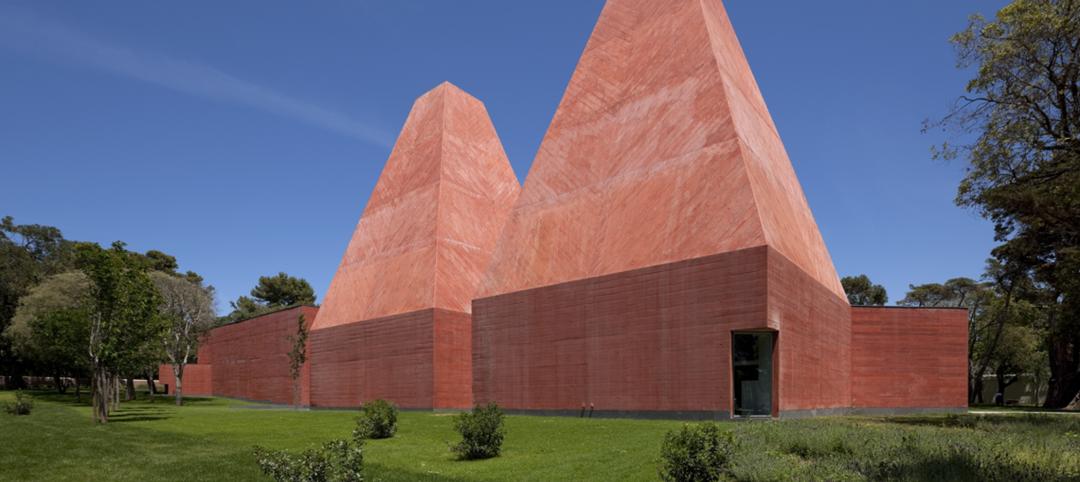Founded in 2009 with an initial endowment of $1.9 million, HMC’s nonprofit Designing Futures Foundation (DFF) has donated about $230,000 in its three years of existence, including $105,000 in scholarships to California students. The grants help promising high schoolers with an interest in architecture, design, engineering, education, or healthcare pay for expenses like test preparation services, computers, and college entrance exam fees and tuition. The scholarships can be extended for up to five years of college.
Executive Director Adrienne Luce says the foundation serves as an extension of HMC’s social responsibility. The DFF’s Community Project initiative provides grants of up to $10,000 to HMC employees for projects for that benefit the communities in which they live and work.
For example, three HMC employees—Pablo La Roche, PhD, LEED AP, Sustainable Design Director; Eera Babtiwale, LEED AP BD+C, Environmental Analyst; and Sandy Kate, REFP, LEED AP, Associate Principal/Senior Education Facilities Planner—proposed a sustainability education program at McKinley Elementary School in Santa Monica. The DFF sponsored nine workshops for 220 McKinley students in grades 3-5 over three days, providing 13½ hours of instruction on energy, water, and waste.
The DFF has funded scholarship programs at Ramona High School, a healthcare academy in Riverside, Calif., and at the Center for Advanced Research and Technology, in Fresno. The DFF also supports Bright Prospect, a college access and retention program in Pomona, and hosted a career day for students aspiring to become architects, engineers, or designers, topped off by a tour of the Ontario office.
Scott Plante, AIA, LEED AP, Senior Project Designer, won a $7,500 DFF grant to help restore the historic Micheltorena Steps in Silver Lake, the vintage 1920s-LA neighborhood where he lives. “The steps are on a main route to the school, and they’re in a state of disrepair,” says Plante, who serves on the Silver Lake Urban Design Committee. The $24,000 project, with donations from the DFF, the Silver Lake Neighborhood Council, and the Safe Routes to Schools program, plus a lighting upgrade by the local water and power utility, will be completed in two phases starting next June.
See the video about the DFF and the Micheltorena Steps project at: www.BDCnetwork.com/HMC/DFF.
At the university level, the Designing Futures Foundation has:
- Provided a $10,000 seed grant to help Cal Poly Pomona start a healthcare architecture studio, the first of its kind west of the Mississippi.
- Worked with Harvey Mudd College and the California Institute of the Arts on a project that uses online games and resources to foster greater environmental responsibility among college students.
- Funded an $18,000 water demonstration garden at Norco College, a two-year institution in Riverside.
- Sponsored research by HMC staff and consulting experts at UC San Diego’s Calit2 StarCAVE virtual reality environment on the effects of the built environment on building users. +
Related Stories
| Apr 5, 2011
Top 10 Buildings: Women in Architecture
Making selections of top buildings this week led to a surprising discovery about the representation of women in architecture, writes Tom Mallory, COO and co-founder, OpenBuildings.com. He discovered that finding female-created architecture, when excluding husband/wife teams, is extremely difficult and often the only work he came across was akin to interior design.
| Apr 5, 2011
What do Chengdu, Lagos, and Chicago have in common?
They’re all “world middleweight cities” that are likely to become regional megacities (10 million people) by 2025—along with Dongguan, Guangzhou, Hangzhou, Shenzhen, Tianjin, and Wuhan (China); Kinshasa (Democratic Republic of the Congo); Jakarta (Indonesia); Lahore (Pakistan); and Chennai (India), according to a new report from McKinsey Global Institute: “Urban World: Mapping the economic power of cities”.
| Mar 30, 2011
China's low-carbon future city
In 2005, the Chinese government announced its target to reduce energy consumption per GDP unit by 20% by the year 2010. After a multi-billion investment, that target has been reached. The Chinese Climate Protection Program’s goal to increase energy efficiency, develop renewable energies, and promote energy savings while reducing pollutant emissions and strengthening environmental protection is reflected in the “Future City” by SBA Design.
| Mar 30, 2011
Is the AEC industry at risk of losing its next generation leaders without better mentoring?
After two or three horrifying years for the AEC industry, we are finally seeing the makings of a turnaround. However, data developed by Kermit Baker as part of the AIA Work-on-the-Boards survey program indicates that between 17% and 22% of design firms are eliminating positions for interns and staff with less than six years of experience. This data suggests the industry is at risk of losing a large segment of its next generation of leaders if something isn't done to improve mentoring across the profession.
| Mar 29, 2011
City's design, transit system can ease gas costs
Some cities in the U.S. are better positioned to deal with rising gas prices than others because of their design and transit systems, according to CEOs for Cities, a Chicago-based nonprofit that works to build stronger cities. The key factor: whether residents have to drive everywhere, or have other options.
| Mar 29, 2011
Chicago’s Willis Tower to become a vertical solar farm
Chicago’s iconic Willis Tower (formerly the Sears Tower) is set to become a massive solar electric plant with the installation of a pilot solar electric glass project.
| Mar 29, 2011
Read up on Amazon.com's new green HQ
Phase IV of Amazon’s new headquarters in Seattle is nearly complete. The company has built 10 of the 11 buildings planned for its new campus in the South Lake Union neighborhood, and is on-track for a 2013 grand opening.
| Mar 29, 2011
Portuguese architect Eduardo Souto de Moura wins Pritzker Architecture Prize
Portugese architect Eduardo Souto de Moura, whose precisely-honed buildings reflect the influence of the late Chicago modernist Mies van der Rohe, is the 2011 winner of the Pritzker Architecture Prize, the field's highest honor.
| Mar 25, 2011
Qatar World Cup may feature carbon-fiber ‘clouds’
Engineers at Qatar University’s Department of Mechanical and Industrial Engineering are busy developing what they believe could act as artificial “clouds,” man-made saucer-type structures suspended over a given soccer stadium, working to shield tens of thousands of spectators from suffocating summer temperatures that regularly top 115 degrees Fahrenheit.












